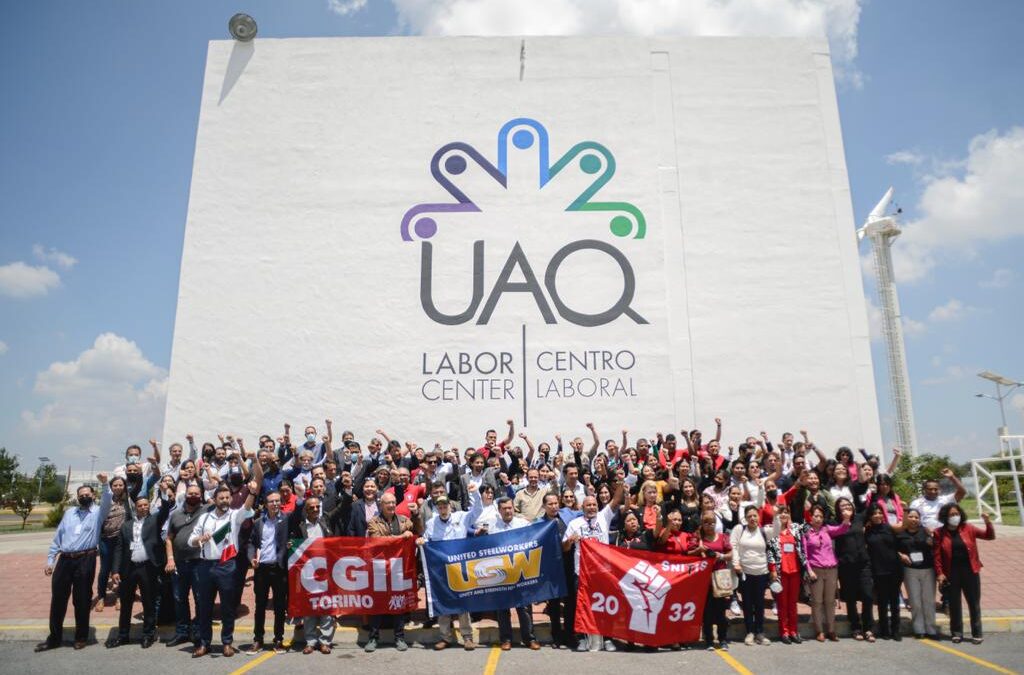
Jul 26, 2024
More than 500 Philippine workers and trade unionists joined a march on July 22nd in Quezon City, demanding that President Ferdinand R. Marcos, Jr. declare support in his State of the Nation Address (SONA) for legislation that would further raise the minimum wage.
The Regional Tripartite Wages and Productivity Board approved a 35 PHP (approximately 0.60 US dollar) daily minimum wage hike for workers in the capital region earlier this month. This falls far short of the 150 PHP (about 3 US dollars) wage hike the National Wage Coalition has persistently called for to support workers’ economic recovery amid high inflation, poor job quality and a lack of new and decent jobs.
The Coalition, representing local workers across various industries and sectors, has remained steadfast in demanding livable wages and are advocating for multiple bills that have been introduced but still await action from the government.
The president has yet to engage in dialogue with Philippine Labor representatives and did not mention wages in his SONA.
Coalition member, Center of United and Progressive Workers (SENTRO), noted in an online statement, “[t]he [national government’s] absence of genuine effort to attain long-term solutions against rising costs and the provision of measly increases that leave workers running in place against inflation…” SENTRO added, “We deserve higher wages not simply because of our labor, but because we are human beings who have every right to live peacefully and decently.”

Sep 2, 2022
A new Labor Center in Mexico will advise workers about their rights and how to mobilize and organize unions and collectively bargain. The Labor Center, at the Autonomous University of Querétaro in central Mexico, is supported by the Solidarity Center and the UCLA Labor Center.
“The aim is to strengthen and promote the full recognition of labor rights, freedom of association and organization, and the democratic participation of workers through research, linkage and accompaniment,” said Labor Center Director Dr. Javier Salinas García. Salinas spoke at a recent Solidarity Center event in Mexico to announce the opening.
The Labor Center comes three years after Mexico’s government announced a series of comprehensive labor reforms to establish a democratic unionization process, address corruption in the labor adjudication system and eradicate employer protection (“charro”) unions prevalent in the country.
The Labor Center is “a way to respond to the needs of the situation,” said Beatriz García, Solidarity Center Mexico deputy program director.
“I think we all agree that Mexico is going through a historic moment. The labor reform responds to the demands that have been the objectives of the struggle of many workers for years, for decades, and reflects some positive practices of the independent unions,” she said.
The event featured a panel of independent union members and leaders who discussed the future of the labor movement in Mexico in the wake of historic labor law reforms.
Panelists explored the role that democratic and independent trade unions in promoting labor reform implementation in Mexico three years after the 2019 Labor Reform and negotiations of the United States–Mexico–Canada Agreement (UMSCA/T-MEC).
Speakers shared how they are using the tools of labor reform to organize on their worksites.
“We are the delegates, and we call our colleagues to share information about the Union League,” said Sonia Cristina García Bernal. “We have helped colleagues who were told they were going to be fired without severance pay. We have been able to get them severance pay. We have been able to get them rehired.”
“After these three years, the tool that we use the most is fast response mechanisms,” said Imelda Guadalupe Jiménez Méndez. “This has been a very important tool.”
In addition to Beatriz García, speakers included: Imelda Guadalupe Jiménez Méndez, Secretary for Political Affairs, the Miners Union (Los Mineros); Julieta Mónica Morales, General Secretary, Mexican Workers’ Union League (Liga Obrera Mexicana); Rita Guadalupe Lozano Tristán, Mexican Workers’ Union League (Liga Obrera Mexicana); Alejandra Morales, General Secretary, Independent Union of National Workers in the Automotive Industry; and Sonia Cristina García Bernal, Special Delegate, Mexican Workers’ Union League (Liga Obrera Mexicana).


